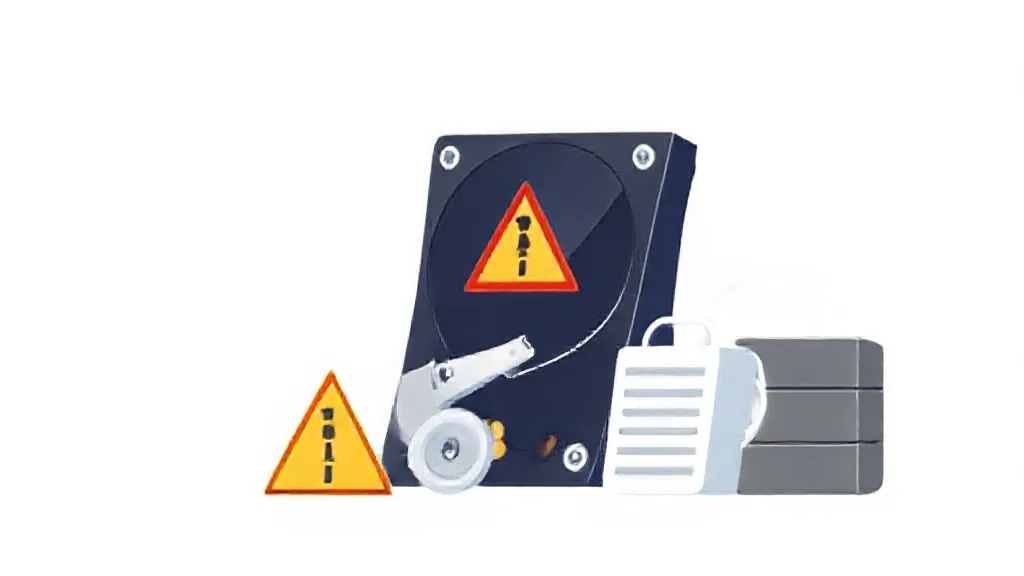Hard drives are essential components of modern computers, storing everything from operating systems to personal files. However, like all mechanical devices, they are susceptible to failure. Understanding what happens when a hard drive fails is crucial for anyone who relies on digital storage.
This article delves into the causes, symptoms, and recovery options associated with hard drive failure, providing a comprehensive overview that can help users safeguard their data.
The Mechanisms Behind Hard Drive Failure
Hard drive failure can occur due to several reasons, broadly categorized into physical and logical failures. Physical failures involve mechanical issues, such as a malfunctioning read/write head, motor failure, or platter damage.
Logical failures, on the other hand, relate to software issues, such as corrupted files or damaged file systems. The most common physical failure is the "click of death," where the drive emits a clicking sound, indicating that the read/write head is unable to access the data. Understanding these mechanisms is vital for diagnosing issues early and potentially preventing data loss.
Identifying Symptoms of Hard Drive Failure
Recognizing the early signs of hard drive failure can be the difference between data recovery and permanent loss. Symptoms may include unusual noises, frequent crashes, slow performance, and error messages related to file access. Users might also notice that files become corrupted or disappear altogether.
Monitoring these indicators can help users take proactive measures, such as backing up important data, before a complete failure occurs.
The Impact of Hard Drive Failure on Data
When a hard drive fails, the impact on data can be severe. Depending on the type of failure, data may become inaccessible, corrupted, or even permanently lost.
In cases of physical failure, recovery options may be limited and often require professional data recovery services, which can be costly. Logical failures, however, may allow users to recover data through software solutions or by repairing the file system. Understanding the implications of hard drive failure is essential for anyone who stores valuable information on digital devices.
Preventive Measures to Avoid Hard Drive Failure
Preventing hard drive failure is possible through various strategies. Regular backups are the most effective way to protect data, ensuring that copies are stored on separate devices or cloud services. Additionally, users should monitor their hard drives' health using diagnostic tools that can check for errors and predict potential failures.
Maintaining a clean and cool environment for the computer can also help extend the life of the hard drive, as excessive heat and dust can lead to mechanical issues.
Data Recovery Options After Failure
In the unfortunate event of a hard drive failure, several recovery options are available. For logical failures, users can often utilize data recovery software to retrieve lost files.
Tools like Recuva or EaseUS Data Recovery Wizard can scan the drive for recoverable data. In cases of physical failure, professional data recovery services may be necessary. These services involve advanced techniques and equipment to recover data from damaged drives, but they can be expensive and are not always guaranteed to succeed.
The Role of SSDs in Data Storage
As technology advances, solid-state drives (SSDs) are becoming more popular than traditional hard drives. Unlike HDDs, SSDs have no moving parts, which significantly reduces the risk of mechanical failure. However, SSDs are not immune to failure; they can experience issues related to wear leveling and data retention.
Understanding the differences between HDDs and SSDs can help users make informed decisions about their data storage options and potential risks.
Future of Data Storage and Reliability
The future of data storage is leaning towards more reliable and efficient technologies. Innovations such as cloud storage, hybrid drives, and emerging storage technologies are changing the landscape of data management.
As these technologies evolve, they promise to offer better performance, increased reliability, and enhanced data security. Staying informed about these advancements can help users choose the best solutions for their storage needs.
Conclusion: The Importance of Awareness
In conclusion, understanding what happens when a hard drive fails is vital for anyone who relies on digital storage.
By recognizing the signs of failure, implementing preventive measures, and knowing recovery options, users can protect their data and minimize the impact of potential failures. In an increasingly digital world, awareness and preparedness are key to safeguarding valuable information.
